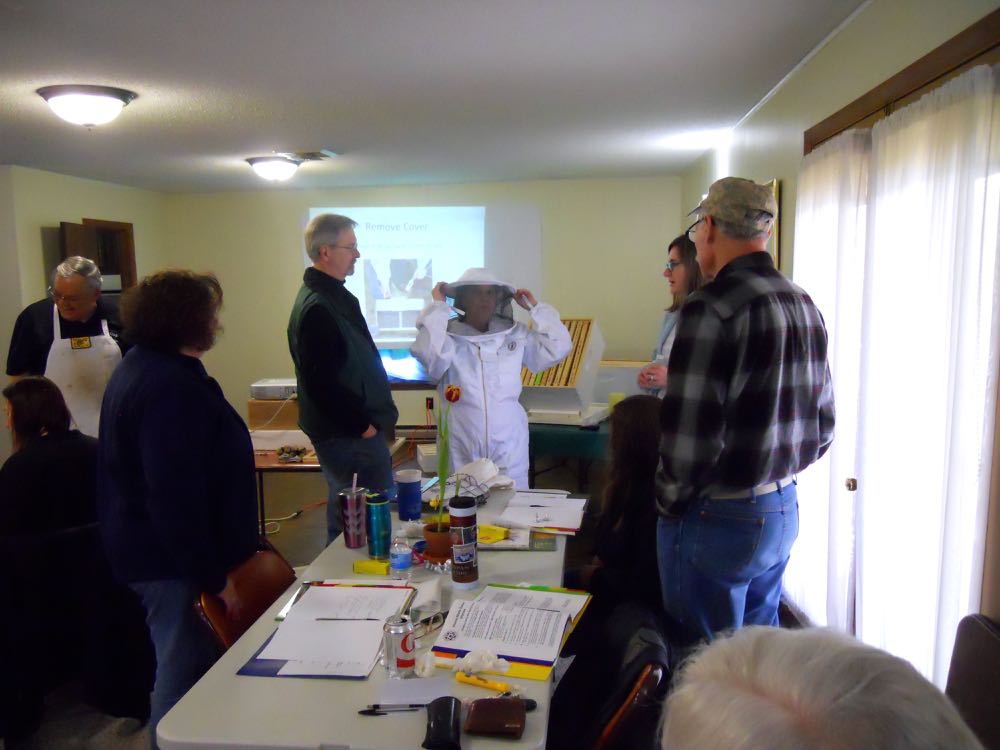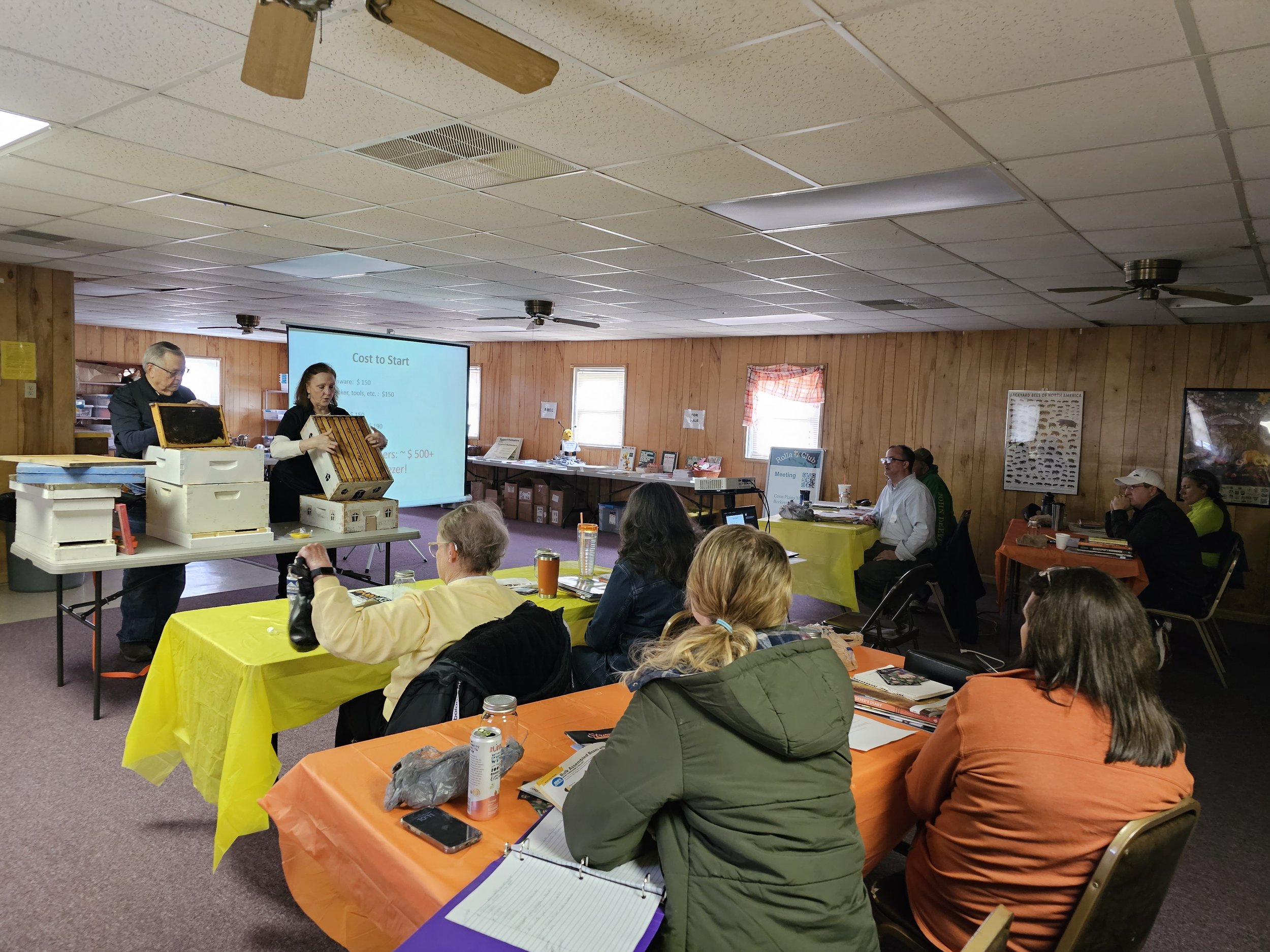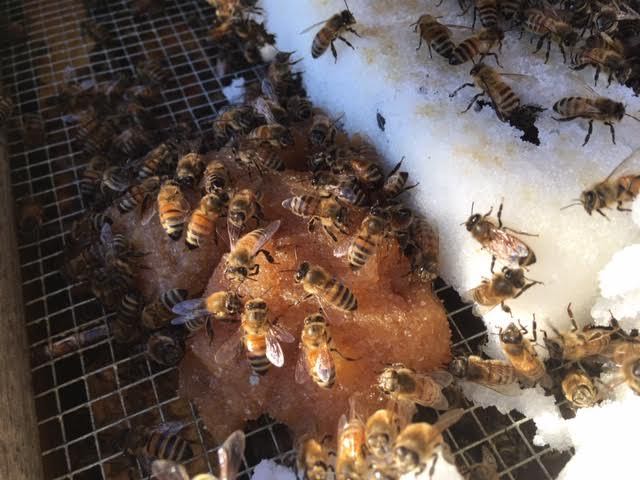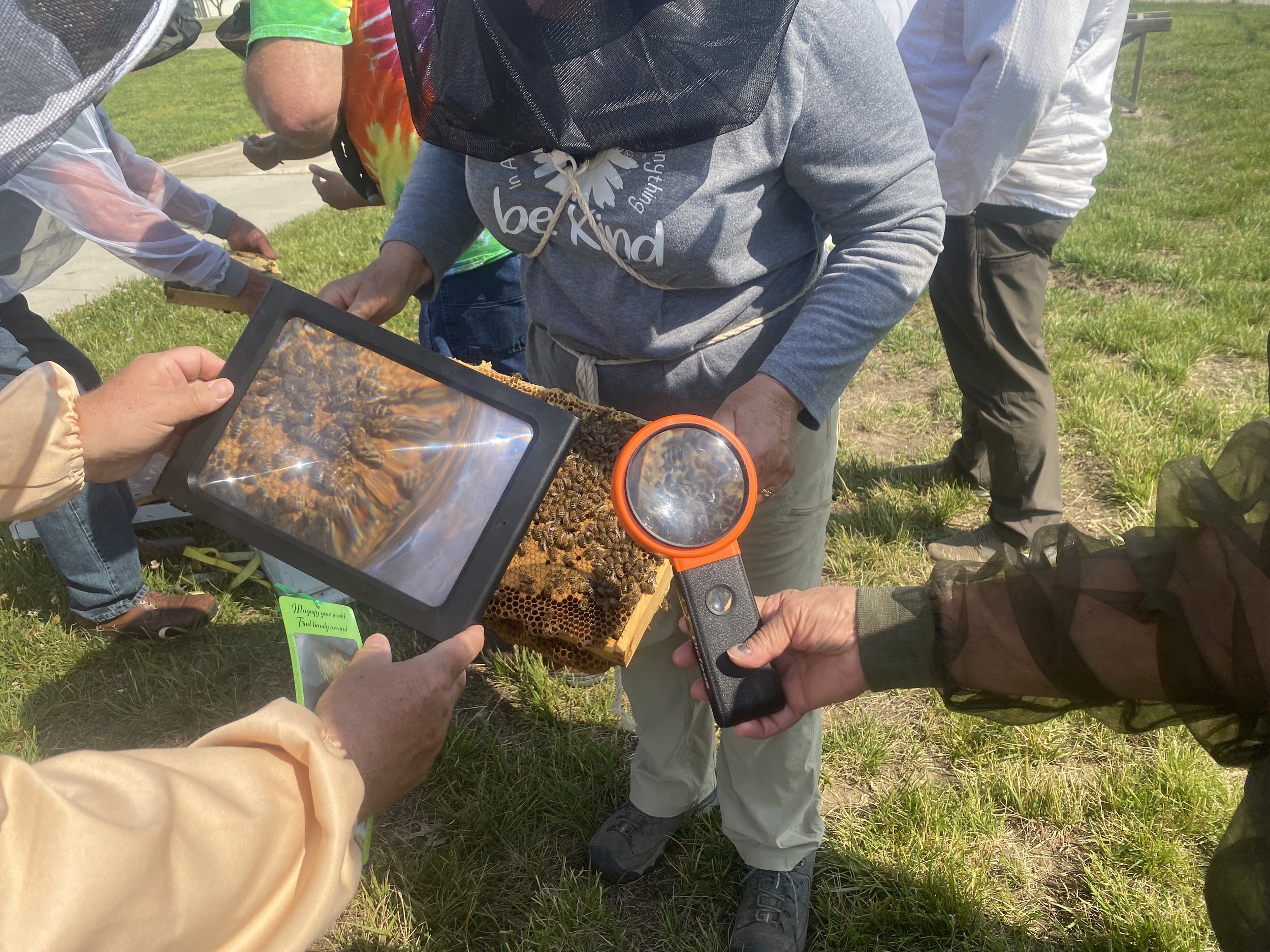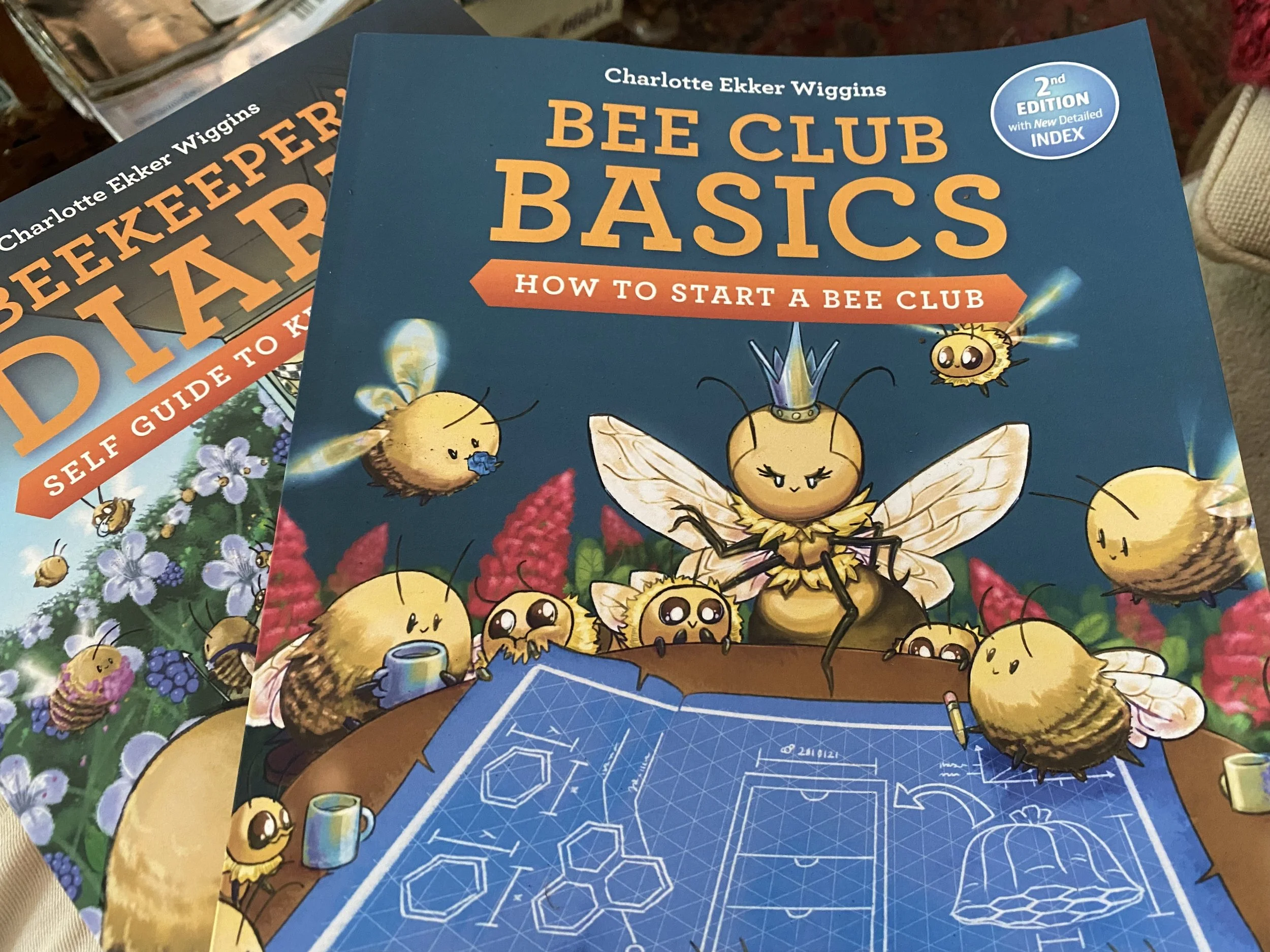What Success Looks Like
/One of my desks commemorating my goals. (Photo by Charlotte Ekker Wiggins)
What Success Looks Like
2020 started out on a roller coaster ride. I was finishing my beekeeping reference books, developing beginning beekeeping class curriculum and then teaching classes. It did cross my mind that I can’t keep this up once spring arrives and the outdoors is calling.
In the meantime, I was very happy to be one of the first Missouri beginning beekeeping classes certified through Great Plains Master Beekeeping. The program through University of Nebraska at Lincoln is providing scientifically-based, best management practices beekeeping to a five state area including Nebraska, Kansas, Iowa, Wisconsin and Missouri. They review my class materials to make sure what I am teaching is not only best management practices but also current. And they review instructors backgrounds to temporarily allow them to teach these classes until we have certified master beekeepers.
I have been teaching beginning beekeeping classes since 2012, first through University of Missouri Extension and now through our educational non-profit bee club. All of our class materials are being reviewed and certified as offering scientifically-vetted best management practices, a process that takes a lot more time and effort than just throwing a presentation together. The narrative has to be included in depth and materials double-checked. Sometimes triple-checked when recommended practices conflict.
My second beginning beekeeping class February 15, 2020. (Photo by Charlotte Ekker Wiggins)
One of the challenges with some beekeepers and beekeeping students is to make it clear that bees, flowers and their environment are all connected. Some beekeepers want to just focus on bees when plants provide food and nutrition. Others only focus on planting without considering what bugs depend on the plants they are growing. My goal in the beginning beekeeping classes is to make the connection clear; bees need flowers and vice versa.
So how does one gauge success.
Successfully keeping honey bees is one way and the usual mark I use for success.
There are also several ways to gauge how well the class is doing; registration numbers is one way. Class surveys are even better.
If class surveys are well-written to ask the right questions, one can determine if facilities are ok; if classes meet expectations and what other classes students may be interested in.
Class surveys are important success gauges. (Photo by Charlotte Ekker Wiggins)
As I was compiling the beginning beekeeping class surveys to assess what we need to do differently, if anything, I turned the surveys over to mark the ones I had reviewed.
There, on the back, was a class doodle and my newest favorite mark of success.
It’s not a drawing of just a flower.
Or just a bee.
The two are drawn together.
I loved it so much I framed it.
my favorite mark of success, a class doodle behind a survey. (Photo by Charlotte Ekker Wiggins)








